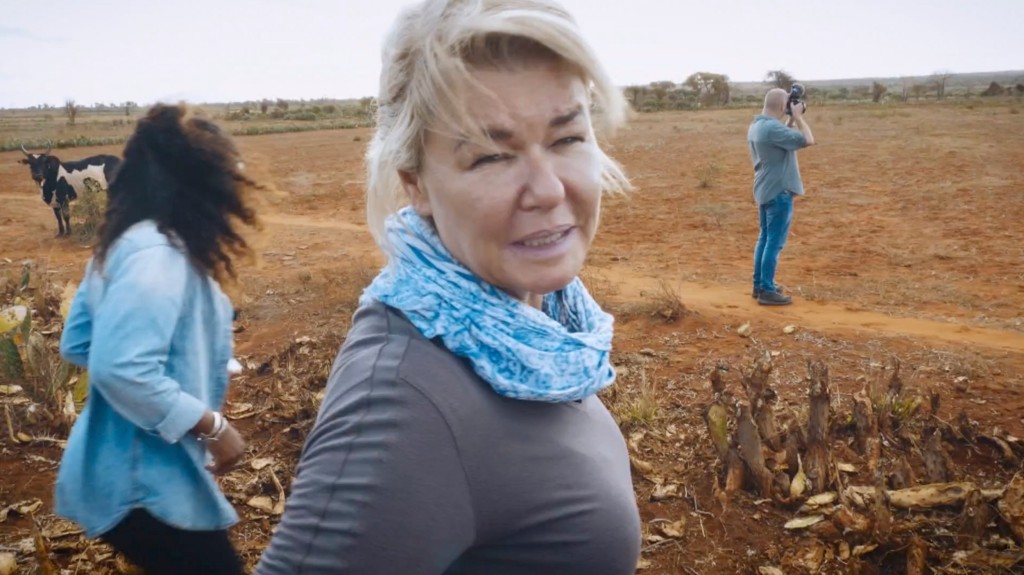Sky News special correspondent Alex Crawford said how she feared for her life when the Taliban trapped her in a windowless room.
As she sought to report on weapon-making in Kabul, the 61-year-old journalist thought she and her two colleagues were about to be the subject of a hostage video.
Alex was concerned that her family would be left pleading with the British Army to save her, and that she would ‘never be seen again.’
She continued: ‘We just sat there. My Afghan translator prayed and prayed and prayed and was sweating and – I don’t want to say crying – but he was very, very upset.
‘My cameraman, who was a very tough Australian, was just extremely silent. And we were left in there for what seemed like forever.’
Alex explained that the room they were trapped in was set up for a hostage film, with only a camera on a tripod and the Taliban’s characteristic flag.

‘All of us in that room thought, “Oh god we’re going to be at the centre of a hostage tape,’ she said.
After a long wait, six Taliban entered the room, all wearing balaclavas and equipped with firearms, and lined up in front of the camera, according to Alex.
She added: ‘I thought this is probably our only chance to try and persuade them. I just launched at them and started remonstrating with them and shouting and being really aggressive and saying, “We trusted you. We came here in good faith. You were meant to be showing us this, that and the other.

“Would you really treat your mother like this your sister like this? Your wife like this? How do you think we feel? This is disgraceful.”‘
Alex recalls the translator being ‘aghast’ at her outburst, afraid for their immediate death.
Despite the dangerous strategy, Alex’s daring paid off when she stunned the Taliban.

She continued: ‘The Taliban were just like, “Whoa.” They appeared to be, from their body language, a bit taken aback.
‘And I just kept going on angrily saying, “We trusted you.” And then next thing they laid down their guns, they apologised and took us out and said, “Okay, go, that’s it.”
‘That felt very, very scary at that time,’ Alex added, who spoke ahead of the release of her Women at War: Mexico Sky documentary.
Alex’s encounter with the Taliban is not a unique incident in his 30-year career, which has seen terrible bloodshed, horror, and human misery while reporting from conflict zones such as Ukraine.
Alex has not only documented life-threatening circumstances, but she has also been abducted, questioned, and fired at with real bullets, among other terrible encounters.
When asked to choose the worst, Alex replied that it was “extremely difficult to rate dread,” but he was frequently left asking, “How the heck did we get through that?”
‘It sort of diminishes all of them,’ she continued. ‘In quite a lot of cases, I’ve been just terrified out of my frigging mind. Then you come through it, and then you get another one.’
Despite her amazing career, Alex stated that she did not’seek out’ or’subconsciously’ pursue conflict reporting, instead finding herself placed in places ‘alive with riots and rallies.’
But why does she continue to return to cities rife with horror and bloodshed, endangering her life?
‘In the end, it almost feels like you need to do it,’ she replied. ‘Like you should do it. Because if you’re among the journalists with the background, experience and everything fits into place, and no one else wants to do it or is doing it, then you probably should do it.
‘It sounds sort of moral and I feel like I’m not alone in that. There’s a real vocational aspect to journalism where people just really want to do well, and really want to find the truth and really want to shine a light on what happened and uncover an injustice.’
Sky News documentary Women at War: Mexico is available to watch via Sky On Demand.









